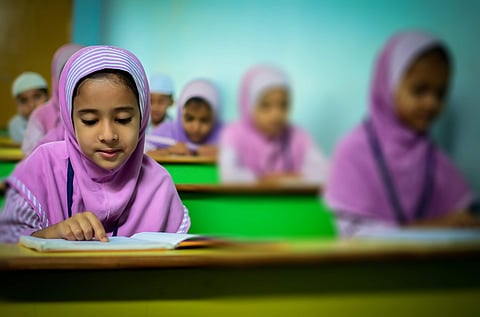

While the state of the nation resuming life post the upliftment of the lockdown is uncertain, the Ministry of Human Resource Development has formed a committee that has suggested to reopen schools and colleges only by September 2020. And if they need to be opened earlier than that, then there are different ways of making these places safe for students. Usually, until May 31, all the schools are closed on account of summer vacations so the lockdown should not be a problem for us for another month. If the government decides to reopen schools in the first week of July, then they need to disinfect and sanitise the schools because many of them are being used to quarantine COVID-19 patients and a few of them are being used to provide shelter for migrant workers. Hence, disinfecting school premises should be on the priority list both for government and private institutions.
Since the number of schools is massive, the Education Department must prepare a blueprint for disinfecting the schools from June 1 to 15. According to the latest data of the Government of Karnataka, there are over 43,000 primary and secondary government schools and 50,000 high schools. This must take place in better coordination between the State Government, Municipal Corporation, Health Department and School Development Monitoring Committee (SDMC). If we are successful in keeping our schools ready and infrastructure at place by the second week of June, then we will be able to ask children to come back by the first week of July.
The second important factor is to create awareness among children or students on how they need to keep themselves clean, practise social distancing, wear masks and so on. Of course, the government has raised some general awareness about the disease. But once the schools begin, we must tell them the importance of washing hands every now and then and wearing masks must be made a compulsion in schools. Because the research for vaccination is still in the process. The virus is invisible and you never know in which way one might come in contact with it. Therefore, I suggest that this preparedness must begin among schools from June 1.
I think that the Central Government must make the best use of their platforms like DD National or All India Radio rather than using online platforms. There are many students in government schools whose families don't have access to smartphones. I think the content can be prepared by experts and broadcast across different states in different languages.
All these measures can be taken only if the schools open by the first week of July. In case the MHRD makes it mandatory for the institutions to open by September, then schools can consolidate the syllabus that would be taught in the first quarter of the academic year and go for live classes. In the second quarter, schools can start regular classes. By then, we will have a clear picture of whether this disease can be brought under control or not.
I don't believe in schools going for online classes because it is another way to impose a subscription fee and so on to burden poor parents. These schools must ensure that they don't make hundreds of children sit in a single classroom close to each other. They must compulsorily provide sanitisers and cotton cloth masks to students and check on their health on a daily basis.
Counselling is a primary factor
We all know that a few parents know the art of handling children in a better way and summertime is the best time for these kids to involve themselves in recreational activities. However, with the lockdown, children have been staying at home and they might have undergone a lot of physical or mental abuse. I suggest that once the lockdown lifts and they are ready to get back to school, they must be provided with better counselling. Only then will they be able to cope with studies and other activities.
(Dr Niranjanaradhya V P is currently a Senior Fellow and Programme Head for Universalization of Education Programme at Centre for Child and the Law, National Law School of India University.)
Some interesting number facts
There are more than four lakh government schools in India
The total number of students in India is 34 crore which is more than the USA's population
Karnataka alone has 900 fully furnished residential schools like Karnataka Public School, Morarji Desai Residential School, Kittur Rani Channamma Residential Sainik School for Girls and a few others
Here are some of the online platforms for videos conferences
ezTalks Meetings
At least 100 participants can easily be part of the video conferences
GoToMeeting
This platform has almost the same features as others but one can also use international toll-free numbers to connect with people
Pexip
These platforms allows you to host the web conference yourself on the premises or even through cloud services like Google Connect and others
(As told to Rashmi Patil)
